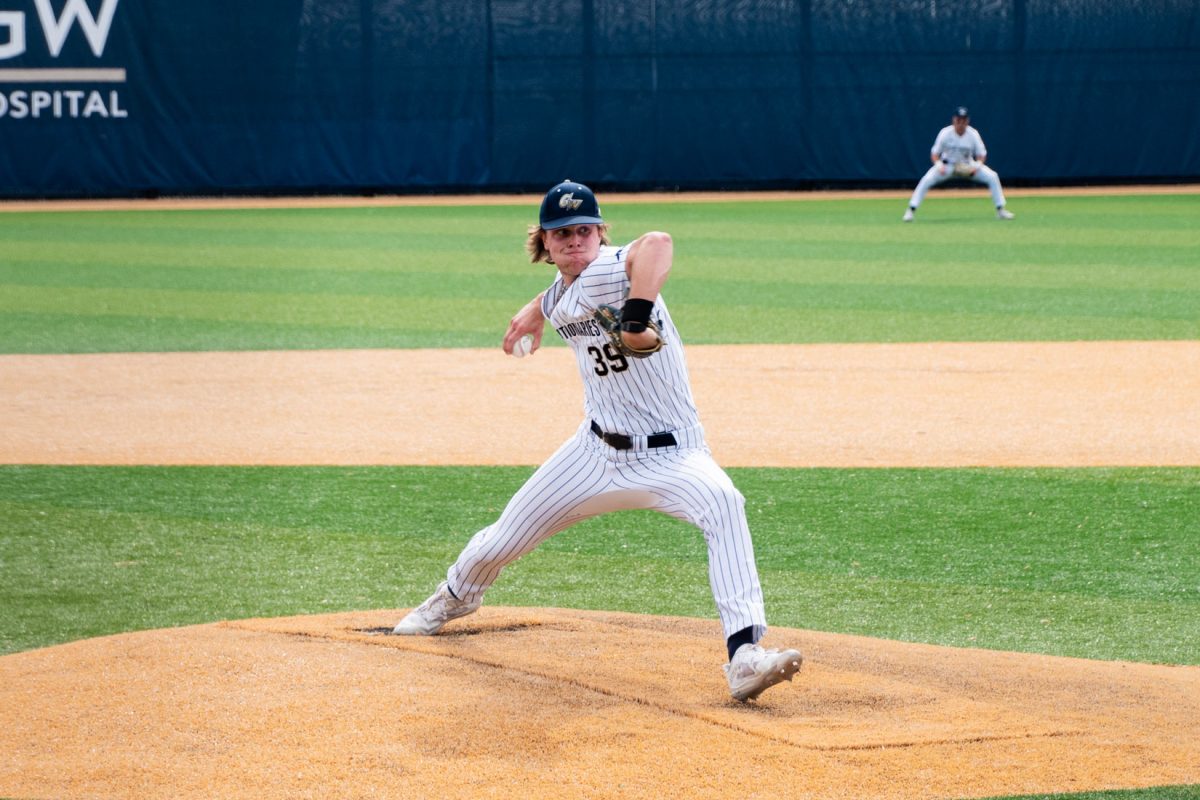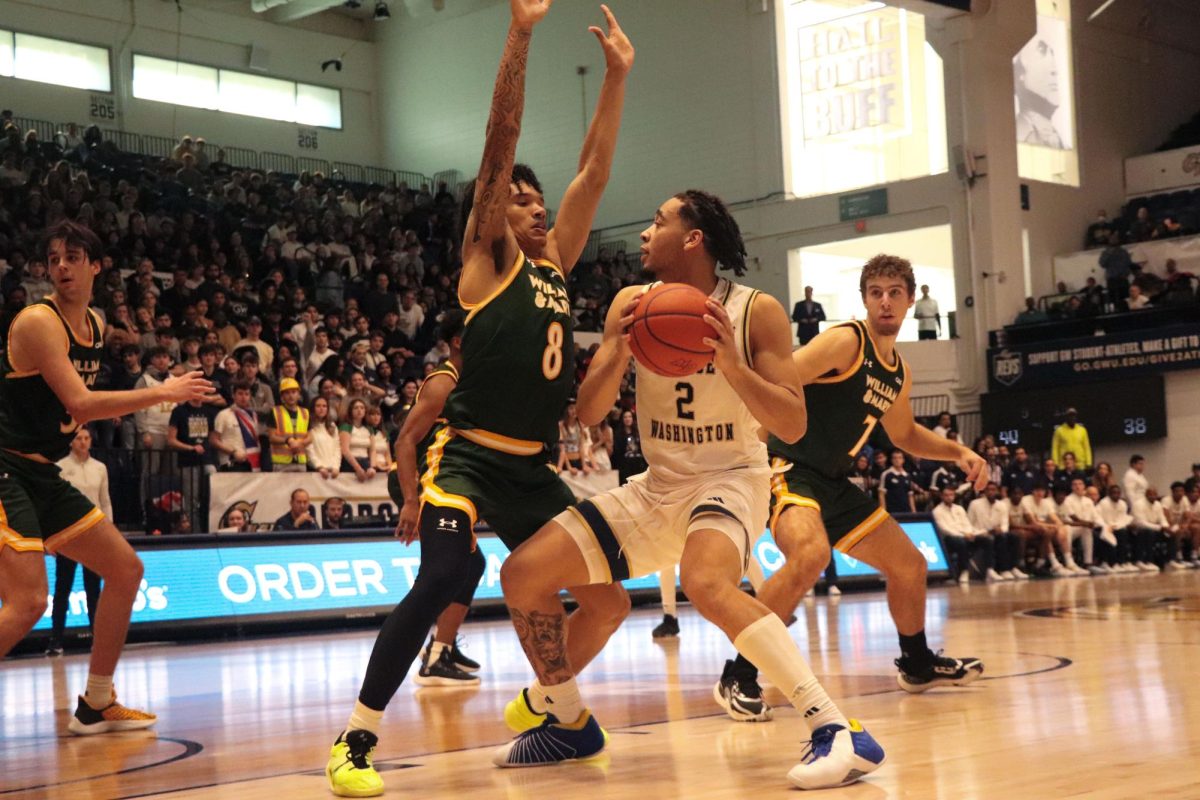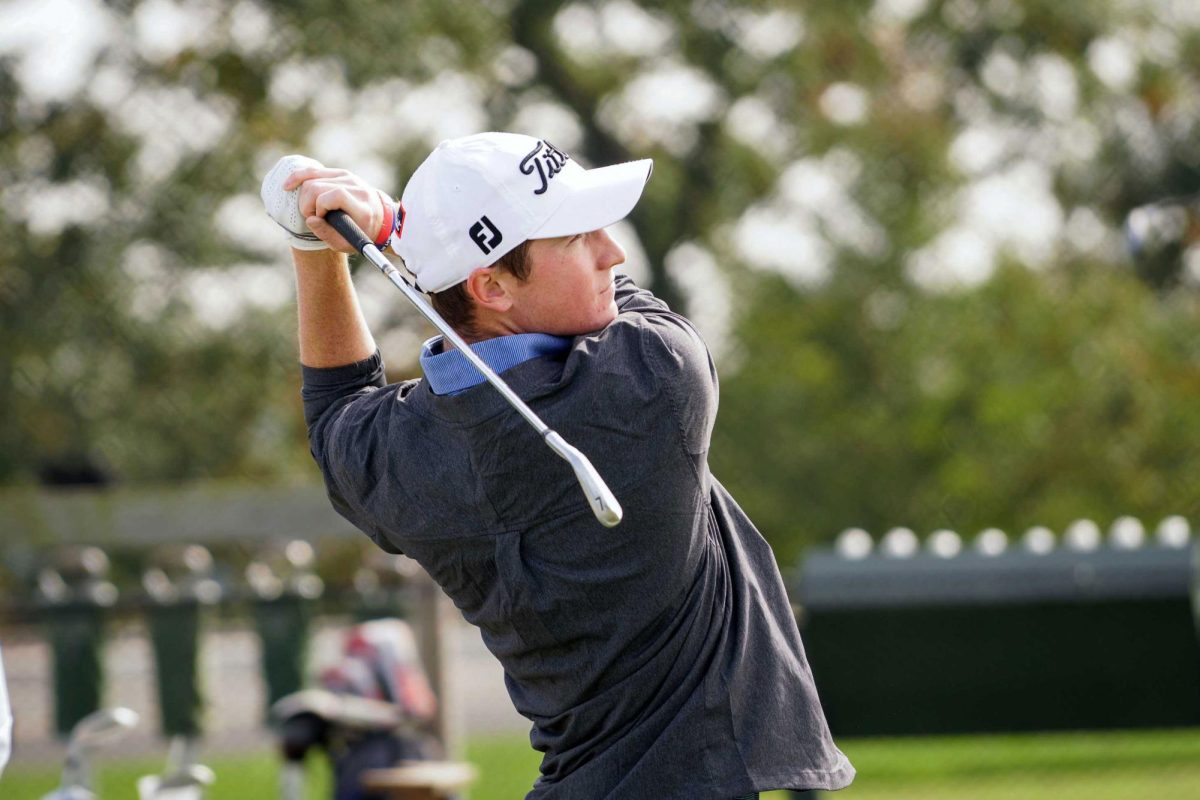Those who wonder what is so “ultimate” about the game formerly known as ultimate frisbee (now simply called ultimate) quickly understand when they watch a player hurl a disk impossibly far down a field, then see his teammate, in full sprint, leap to snatch it out of the air. This is not your father’s game of throw-and-catch on the quad.
Ultimate is much like football but without contact, frequent stoppages of play or the ability to run with the respective throwing object. Teams are generally comprised of seven players on each side who try to move the disk down the 70-yard field toward the endzone using a series of throws – and without letting the disk hit the ground.
Led by senior captain Jack Gaynor, GW’s male ultimate team is currently ranked 31st in the country, according to the Ultimate Players Association, the national governing body for the sport. Despite having only one senior, Gaynor, and starting the season 3-7, the team is now 31-17. If it finishes in the top two in regionals April 29, it will earn a berth in nationals, which take place in Columbus, Ohio, in early May.
“We’re lacking experience, but I think we make up for it by being probably the most athletic team we’ve had since I’ve been here,” Gaynor said.
Unlike most sports, many ultimate players have never played the game before when they come out for tryouts in the spring (no one is cut from the team; the lesser players play on a “B” squad). Experienced players teach the rules and fundamentals of the game to the others.
The sport is in its ninth year at GW and is student-run and -organized, with no official coach or even referees. But those who participate in it approach as seriously as a Division I NCAA sport. The team practices twice a week for three hours, more than half of which is spent running and doing drills.
AJ Iwaszko, who has been playing ultimate for about 20 years and plays on a local team, leads the GW squad through drills, giving players both criticism and praise using ultimate-specific vocabulary. Drills consist of a series of pinpoint and long-distance passes, as well as agility drills, as the footwork and athleticism needed in the game is similar to that of football. Although Iwaszko said he does not consider himself the coach, he calls himself an adviser because he does not travel with the team. Gaynor said his tutelage is part of the reason the team has been successful.
“We try to avoid having guys from within the program coach because he gives a different perspective,” Gaynor said. “He’s played for 15, 20 years so he’s kind of a big name in the sport. His experience helps volumes.”
Ultimate was officially invented in 1968, but became organized and competitive in the early 1980’s. Similar to skateboarding or other alternative sports, it developed from a laid-back attitude of having fun and enjoying the game. Although the sport still maintains some of these values, it has become increasingly popular with more athletic people, who bring their competitiveness with them.
“Particularly at this school, it’s a good way to stay competitive and to keep playing sports,” Gaynor said. “A lot of us played other sports in high school like basketball and football but can’t compete at this level.”
He added, “Recently, it’s emerging out of that alternative culture because more and more athletes are picking the sport up and more people are committed to trying to making it more legitimate. Right now is kind of a key time because the alternative tradition is still prevalent but it’s becoming very competitive and very athletic.”
Both Iwaszko and Gaynor believe the main reason the sport is not more mainstream is because it remains self-officiated. Although there is a rulebook, Gaynor said the rules are still “ambiguous” and are subject to the interpretation of each player and team. Getting officials has been difficult because many purists still hold onto the game’s free-spirited roots and believe referees would destroy them.
“Ultimate can become organized, but it all depends on money,” Iwaszko said. “I think it could easily become very popular in high schools because it does not require much equipment or funding, but I see it being more like rugby, where it’s mostly unorganized but the higher levels are pretty organized.”
Gaynor is not worried about whether sport becomes mainstream or organized right now, however. He and his teammates are focused on beating rivals Delaware and Pittsburgh in regionals. Mainstream or alternative, they approach ultimate as a sport, rather than a game.
“We all expect to finish in the top two at regionals and make nationals in Columbus,” Gaynor said. “Everybody would be extremely disappointed if we didn’t.”







